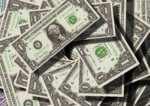Why Do Dividends Reduce Stock Price?
Stocks that pay dividends can be a great investment. You essentially earn interest just for owning the stock, plus you get the bonus of any appreciation. Dividends also play a role in the price of a stock.
A Quick Background
For those of you familiar with dividends, feel free to skip this paragraph. For those of you unfamiliar, keep reading. A dividend is essentially a little bonus a company pays you for owning their stock. Since a share of stock is a piece of ownership in a company, each share is “entitled” to a portion of the income a company makes. When a company pays a dividend, they are paying out a portion of that income to the shareholders.
Dividends and Stock Price
Once a dividend has been declared or announced, the share price will often increase roughly the same amount as the dividend. This is because investors who own the stock want to be paid the dividend. If they sell before the dividend is paid, they will miss out. Therefore, the only way they will sell before the dividend is actually paid is if the share price is higher than it was before the dividend was declared. Investors purchasing shares are ok paying a higher price at this point because they will be paid the dividend, which covers the premium they paid.
However, once the dividend is paid, the opposite occurs and the stock price will often fall. The price typically falls the same amount as the dividend. Since the seller was paid the dividend, they don’t need to sell for a higher amount. Plus, an investor purchasing the stock would no longer be entitled to the payout, so they aren’t willing to pay a premium. Therefore, the price is typically reduced by the amount of the dividend.
Dividend Timing
The key to understanding this timing is the stock’s ex-dividend date. This is the cutoff date for anyone waiting to be paid the declared dividend. If you don’t own the stock by this date, you will not receive the payout. Since it takes brokers a few days to process the owner of each share, the ex-dividend date is typically 3 days before the date the dividend is payable.
Gaining an Advantage
You can use the knowledge, that dividend paying stocks often see their prices fall once a dividend is paid, to your advantage. If you own a stock that has declared a dividend and its share price increases, this provides a good selling opportunity. Conversely, if you know a stock is approaching its ex-dividend date, you’re better off waiting for the price to drop before buying in.
Q&A Series
This post is part of a series of articles ( in which I answer common questions I’ve been asked. If you have a question leave a comment below or contact me directly.






Leave a Reply
Be the First to Comment!